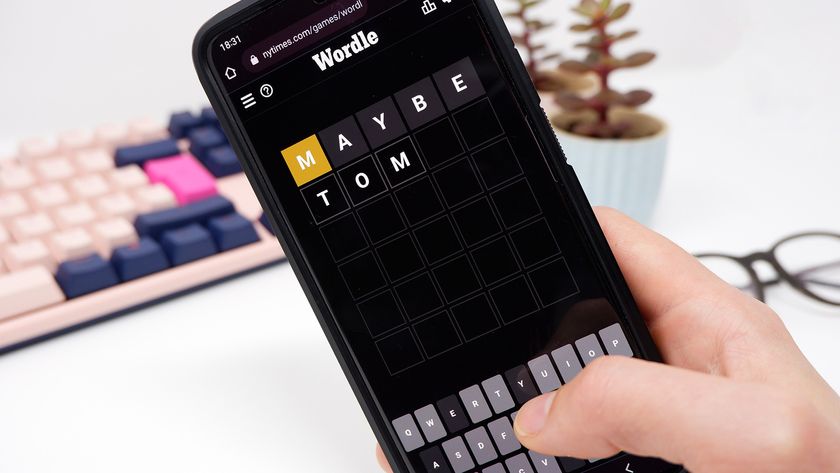Robot Cache is an upcoming digital storefront that will let you buy and sell games online
The new Steam competitor, founded by inXile boss Brian Fargo, wields the power of the blockchain.

InXile Entertainment CEO Brian Fargo has unveiled a new, blockchain-based digital distribution platform called Robot Cache that will enable gamers to buy games, just as they do on any other platform, and then resell them when they're finished. Robot Cache will also have its own cryptocurrency called Iron, earned through mining or game resales, that can be used for games purchases or cashed out.
"Just a handful of companies dominate the multi-billion dollar digital download PC video games market," Robot Cache CEO Lee Jacobson said. "Robot Cache plans to revolutionize the industry by launching the first-ever workable decentralized video game marketplace that benefits both the creators of video games and gamers. All of this is accomplished by expertly leveraging the power, flexibility, safety, and transparency of blockchain technology."

Not up to speed on blockchains and cryptocurrency? Here's a quick crash course in everything you need to know—and a look at some of the downsides, too.
It may sound like a good start to a "buzzword bingo" card, but the use of blockchain technology is specifically what enables the resale of digital games, according to Robot Cache. "The blockchain is the most secure technology that we know of for insuring there are not duplicate copies of items and that faith is one of the key factors to giving the publishers confidence in trusting a service that allows for a resale of a game," a Robot Cache rep explained. "In addition, it allows for a lower cost of distribution which gives us extra margin to share with gamers for a resale."
Robot Cache promises big benefits for game developers and publishers, too. Both Steam and GOG take a 30 percent cut of games sold through their platforms, but game makers will keep 95 percent of revenues earned through new game sales on Robot Cache. They will also take in 70 percent of revenues earned from the resale of used games, addressing a long-standing beef that publishers have with pre-owned game sales at retail outlets, while 25 percent will go to the former owner in the form of Iron.
"Allowing creators to keep 95 percent of new game sales, and 70 percent on game resales, provides developers, like us at inXile, with a strong financial stream," Fargo said. "This gives us more resources to create new content and new IPs for fans."
Robot Cache is slated to launch in the second quarter of this year, and promises to be a "full-featured and live platform" when it goes live. "Robot Cache expects to offer the latest and greatest video games on the Robot Cache platform for gamers’ immediate enjoyment," the company said.
Will it work? There's plenty to be skeptical about, especially when it comes to the embrace of a new technology that a lot of people don't have a firm grasp on, but it's at least worth following along with to see what's cooking when it goes live. Until then, you can find out more about what's going on at robotcache.com.
The biggest gaming news, reviews and hardware deals
Keep up to date with the most important stories and the best deals, as picked by the PC Gamer team.

Andy has been gaming on PCs from the very beginning, starting as a youngster with text adventures and primitive action games on a cassette-based TRS80. From there he graduated to the glory days of Sierra Online adventures and Microprose sims, ran a local BBS, learned how to build PCs, and developed a longstanding love of RPGs, immersive sims, and shooters. He began writing videogame news in 2007 for The Escapist and somehow managed to avoid getting fired until 2014, when he joined the storied ranks of PC Gamer. He covers all aspects of the industry, from new game announcements and patch notes to legal disputes, Twitch beefs, esports, and Henry Cavill. Lots of Henry Cavill.
Most Popular











